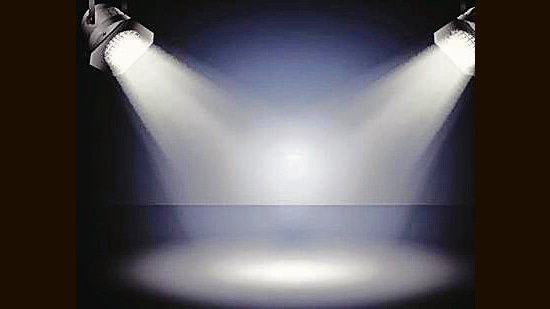Looking at life through a theatrical lens
Guest Column | Each one of us is always part of some scene or the other; What matters is our contribution to the scene we are in and what we decide to learn from it
“Lights, camera, and action.” The phrase, which is usually reserved for performances, unconsciously runs through my mind whenever I have to do something I am nervous about. It instantly buoys my confidence, with a little voice in my ear telling me to give it my best shot.

It works everywhere, from job interviews to dealing with lackadaisical government bank staff, or even starting an overdue project. The words immediately rouse me from procrastination.
Again, when the alarm blares at 5am, the phrase encourages me to tear myself from the cosy comfort of my bed.
I inculcated this habit because of a young dramatics teacher at the boarding school I attended. “It starts our mind’s engine,” he often said. He was part of an exchange programme, and during his one-year stint, successfully drew several students into the world of drama, including those, who never imagined themselves on stage. I was one of them.
The experience imbued such a spirit of theatre in me, that I started viewing life with a theatrical lens. Each one of us is always part of some scene or the other and so many scenes surround us wherever we are and wherever we go on a daily basis. What matters is what we contribute to the scene we are in and what we decide to learn, especially from other characters in them or from the entire scene.
Yes, everyone we come across is a character and each one of them stages something from politeness to anger, and in my opinion, they should be read as – how to be or how not to be. Good or bad –they all offer us something, a quick realisation or a loud wake up call.
One of my most enduring memories is of a young woman crying at the Chicago Airport when she was denied boarding, because she was late. Her plane to London was in push back mode, and she kept shouting, “It is still there, let me go.”
Everyone around was looking at the disturbed woman, and the officials were trying to pacify her. Whenever I think of that episode, I am reminded of the significance of time.
The other day, I spotted an elderly man lying unconscious in an inebriated state with two dogs giving him company. The scene reinforced the lesson: ‘excess of everything is bad’ and ‘our habits make us or break us.’
Over the years, my theatrical lens has forced me to contemplate on the people around me, and the characters they play. Rather than criticising them, I understand them, however odd they may seem to the world. There was a time, when I, too, criticised others, which drained my energy.
Now, for instance, if I meet an angry character, instead of complaining, I try to understand him or her. If possible, we should help them with their anger, as most people just need support and compassion.
In the words of Oscar Wilde, “I regard theatre as the greatest of all art forms, the most immediate way, in which a human being can share with another the sense of what it is to be a human being.”
rameshinder.sandhu@gmail.com
(The writer is an Amritsar-based freelance travel writer)





